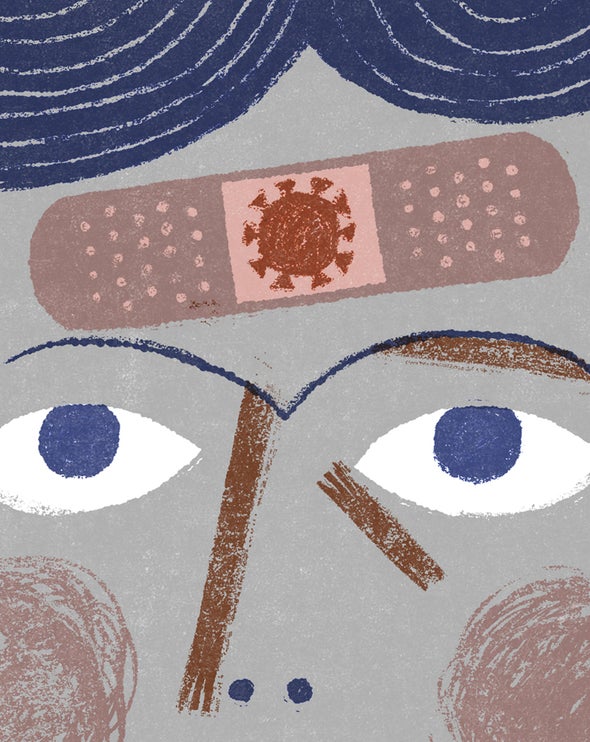As soon as Joe Biden was elected U.S. president, he made his priorities clear by appointing a panel of distinguished experts to advise him on the coronavirus pandemic. The panel has members who are helping the new administration organize vaccine distribution to millions of people and help millions of others who need to be protected until they can get the vaccine. These experts are weighing in on preventive strategies to minimize the likelihood of infection and advise on treatments that can reduce the severity of the disease in those who get sick.
But there is also a need to address a related problem. For months a mental health crisis has accompanied the misery brought on by COVID-19. The U.S. Centers for Disease Control and Prevention reported last August that symptoms of anxiety had tripled and depression symptoms had quadrupled among a group of 5,470 adults as compared with a survey sample from 2019. Meanwhile mental health services have been stretched worldwide. One reason is that mental health personnel and the facilities they work in have been reassigned to COVID-related tasks during the crisis.
All of us need to sustain and enhance our psychological resilience to weather the daily toll of activity restrictions, rising case numbers, hospitalizations and deaths. A set of simple measures known as psychological first aid or mental health first aid can enable people to help family, friends and others in their communities who experience psychological distress from pandemic fatigue, COVID convalescence, or the loss of a friend or relative.
These techniques allow people to become mental health first responders. An analogy to a Red Cross first aid course is apt: both teach trainees what to do when arriving first at the scene—and also flag actions to be avoided. A physical first-aider tries to stabilize the patient; with psychological first aid, a key goal is to restore a person’s sense of safety. If someone is terrified that ordinary (and mental health–building) activities such as going outside are fraught with danger, for example, the responder might mention that air currents and sunlight reduce the risk of becoming ill, offering reassurance that being outdoors during a pandemic could be less hazardous than remaining isolated inside.
What the responder does not say is equally important. When dealing with a person suffering from a panic attack because of a recent trauma, the first-aider might discourage conversation about the details of the event to avoid reinforcing the memory. Other items on a to-do list might include promoting a feeling of “self-efficacy,” or confidence that the person in crisis has the capability to cope with the situation at hand, such as meeting basic needs for food and shelter and establishing contact with family or a mental health professional as needed.
Psychological first aid was used during the SARS and Ebola epidemics. Social service agencies at every level of government and the nonprofit sector should provide more support now for first aid for the psyche because the need has exploded as a result of COVID. Before its arrival, most psychological first aid students at the Institute for Disaster Mental Health at the State University of New York at New Paltz were public safety and health-care workers. But by late 2020 instructors were teaching librarians, who have become frequent confidantes to patrons experiencing extreme stress.
One trainer in the town of Marshfield, England, offered anyone who lives or works there free four-hour courses in mental health first aid because of the prevalence of pandemic-related distress. Mental health first aid is slightly different from psychological first aid because it is targeted at people experiencing issues even before a crisis erupts. The method, created by two educators in Australia, has been taught to 3.6 percent of that nation’s 25 million citizens—and its inventors are eager to reach 10 percent, which would match or exceed the country&c;s first aid trainees for physical injuries.
Biden’s coronavirus task force needs to do its part by taking the mental pain from pandemic fatigue into account in its national plan for COVID-19. It should recognize that modest but readily achievable efforts such as teaching psychological first aid and other forms of resilience training may have a big impact over a short time. But you may not have to wait on the new administration or your local government. Psychological first aid is accessible now—people can learn it online for free through a Coursera curriculum developed by the Johns Hopkins Center for Public Health Preparedness. Everyone should take it.

